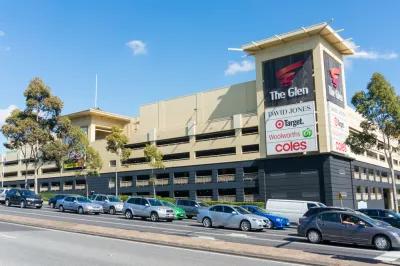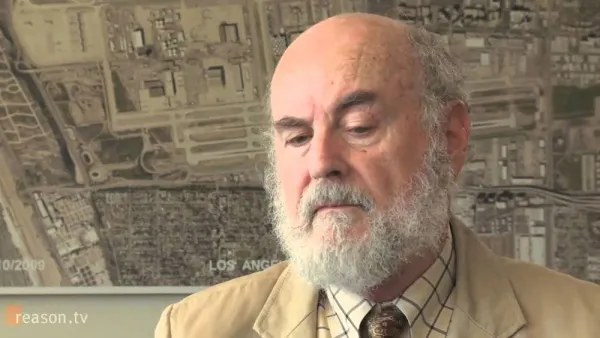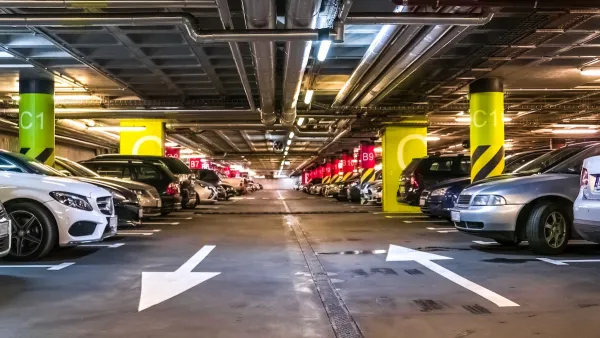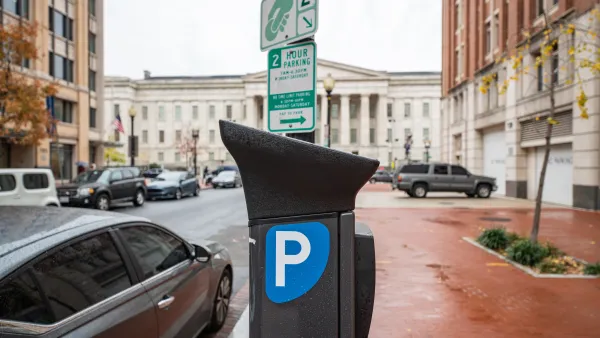A new study presented at the Transportation Research Board Annual Meeting builds a strong case that parking causes driving.

Eric Jaffe reports on the latest evidence that excessive parking actually causes more driving. The study, by Chris McCahill of the State Smart Transportation Initiative along with three University of Connecticut scholars, offers "compelling evidence that parking provision is a cause of citywide automobile use." According to Jaffe, the study found that evidence by "taking a page from epidemiology—adopting a framework meant for 'inferring causality' in the face of a statistical association known as the Bradford Hill criteria."
Jaffe's coverage of the study includes a close look at the methodology and findings of the study, but even for lay people it's important to note how difficult it is to prove causality (Jaffe takes the example of the link between cigarettes and lung cancer as an example)—especially with regard to a subject as political fraught and contentious as parking. In the case of this study, however, the deliberateness required to prove causality elucidates very clear insights into the consequences of parking policy around the country.
FULL STORY: The Strongest Case Yet That Excessive Parking Causes More Driving

Analysis: Cybertruck Fatality Rate Far Exceeds That of Ford Pinto
The Tesla Cybertruck was recalled seven times last year.

National Parks Layoffs Will Cause Communities to Lose Billions
Thousands of essential park workers were laid off this week, just before the busy spring break season.

Retro-silient?: America’s First “Eco-burb,” The Woodlands Turns 50
A master-planned community north of Houston offers lessons on green infrastructure and resilient design, but falls short of its founder’s lofty affordability and walkability goals.

Test News Post 1
This is a summary

Analysis: Cybertruck Fatality Rate Far Exceeds That of Ford Pinto
The Tesla Cybertruck was recalled seven times last year.

Test News Headline 46
Test for the image on the front page.
Urban Design for Planners 1: Software Tools
This six-course series explores essential urban design concepts using open source software and equips planners with the tools they need to participate fully in the urban design process.
Planning for Universal Design
Learn the tools for implementing Universal Design in planning regulations.
EMC Planning Group, Inc.
Planetizen
Planetizen
Mpact (formerly Rail~Volution)
Great Falls Development Authority, Inc.
HUDs Office of Policy Development and Research
NYU Wagner Graduate School of Public Service




























